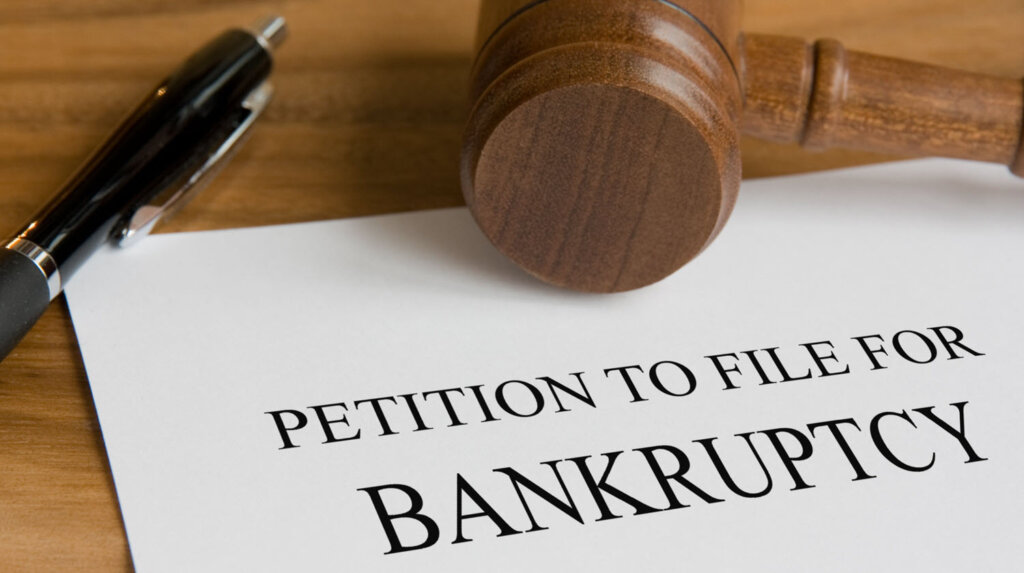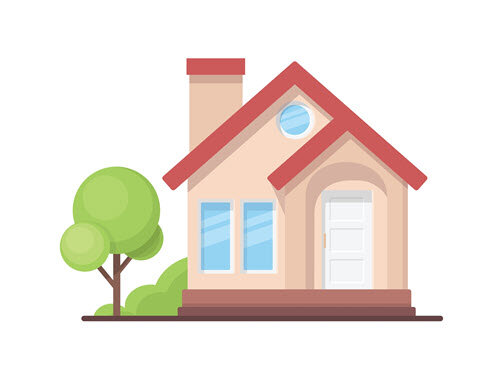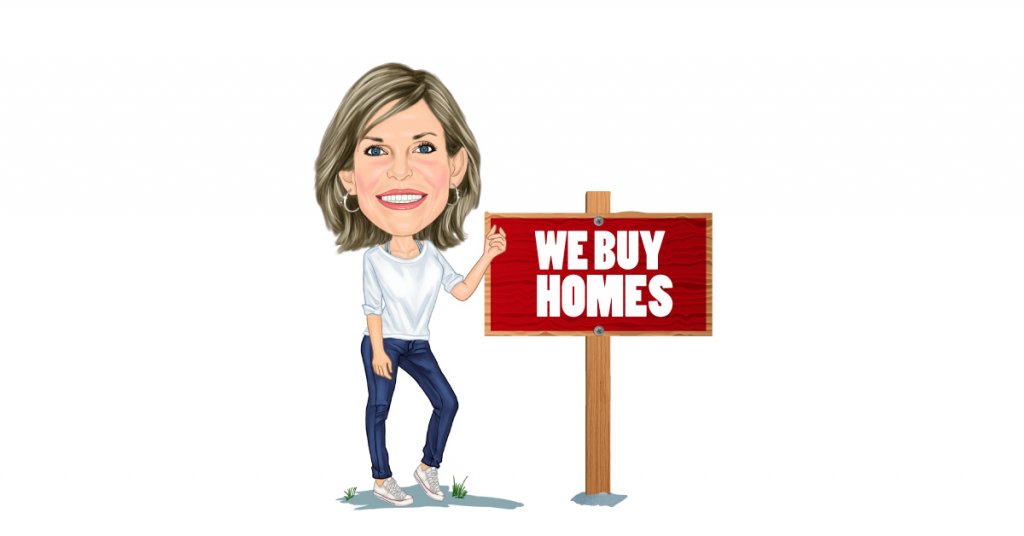
If you’ve accumulated so much debt that bankruptcy is on the table, then you’ve probably said to yourself, “I need to find out how to keep my house if I file for bankruptcy.” After all, you’ve spent years making mortgage payments and building equity in your property.
Bankruptcy can be scary, but it’s important to go through the process with a clear mind and realistic expectations, so take a look at this overview of the bankruptcy process to find out what you can do to protect your assets.
What Bankruptcy Is
Bankruptcy is the process of dissolving, restructuring, and paying off outstanding debts under the court’s supervision. People file for bankruptcy to ease the burden of their debts so that they can move on with their lives and function normally in society.
In the US, bankruptcy can affect a person’s credit for several years after they file. Because bankruptcy can have a massive effect on a person’s life, people usually only file for bankruptcy when they have no other way to pay their outstanding debts. Filing for bankruptcy will not discharge past-due taxes or student loans.
Understanding Unsecured Debt and Secured Debt

Secured debt is backed by some sort of collateral. If you can’t make your secured debt payments on time, then the creditor will take the collateral back to mitigate their losses. Common examples of secured debt include vehicle loans, home equity loans, mortgages, and secured credit cards.
In contrast, unsecured debt involves no collateral for the creditor to seize in case of non-payment. Examples of unsecured debt include business loans, personal loans, medical debt, and unsecured credit cards.
Will I Lose My Home if I File for Bankruptcy?
The results of the bankruptcy process can vary significantly based on your income, the nature and extent of your debts, which type of bankruptcy you file for, your financial prospects, how you present yourself in court hearings, and several other factors. While a person can lose their home in bankruptcy proceedings, there is no guarantee that you’ll lose yours. Depending on which kind of bankruptcy you file for, you may even get a temporary extension on your mortgage payments to prevent the bank from immediately foreclosing on your home.
The Different Kinds of Bankruptcy
Chapter 7 Bankruptcy
When you file for Chapter 7 bankruptcy, the court will first determine whether you make enough money to pay your debts. If they decide that your income is too low to realistically pay your debts, then they will liquidate many of your assets and distribute the proceeds to your creditors. Depending on the value of your liquidated assets, creditors will discharge some or all of your outstanding debts. You will also have to attend a meeting with all of your creditors to discuss your spending habits, income, and other financial details.
The court may or may not liquidate your home as a part of this process. Their decision will primarily depend on how much equity you currently have in the property, the size and value of the property in relation to your needs, whether you’ve made mortgage payments on time, and other factors. A Chapter 7 bankruptcy will stay on your credit report for 10 years.
Chapter 11 Bankruptcy
Chapter 11 bankruptcy primarily exists for businesses to reorganize their operations and restructure their debts into more manageable payments. While some wealthy celebrities and high-profile figures go through Chapter 11 bankruptcy, it’s not usually an option for ordinary people. Occasionally, individuals with many investment properties and people who simply make too much to qualify for Chapter 13 bankruptcy file for Chapter 11 bankruptcy. You will likely be allowed to keep your primary residence if you file for Chapter 11 bankruptcy.
Chapter 13 Bankruptcy
Chapter 13 bankruptcy won’t discharge your debt, but it will allow you to restructure your debt to make it easier to handle. When you file, the court will require you to submit a plan detailing how you’ll pay your debts. They will take your income, account balances, and other details into account when assessing the viability of your repayment plan. Once the court approves your plan, a court-appointed trustee will stop your creditors from collecting on past-due accounts. If you fail to make your payments on time, then the trustee may petition the court to dismiss your Chapter 13 case.
One big advantage of Chapter 13 bankruptcy is that it stops the foreclosure process as soon as you file and protects you from foreclosure as long as you make on-time mortgage payments. It also suspends debt collections for a short time while you go through the bankruptcy process.
To qualify for Chapter 13 bankruptcy, your unsecured debt must be less than $419,275, and your secured debt must not exceed $1,257,850. Moreover, you must have a stable income to prove to the court and your creditors that you will be able to stick to your repayment plan. A Chapter 13 bankruptcy will stay on your credit report for up to seven years.
What To Consider When Filing for Bankruptcy
Private Debt Consolidation
Filing for bankruptcy isn’t the only way to handle your overwhelming debt. Many private lenders offer debt consolidation loans to help struggling debtors simplify their payments and catch up on past-due accounts.
A debt consolidation company will buy out as many of your accounts as possible from lenders. In turn, those lenders will suspend collections and stop bothering you about missed payments. With a debt consolidation loan, you will only have to make one monthly payment at a fair interest rate, so you won’t have as many missed payments and delinquent accounts on your credit report. Debt consolidation companies also provide credit counseling services to help you understand your debt and make an effective budget.
Future Plans
Do you plan on moving in the near future? Are you looking for a new job? Employers, lenders, and landlords take your credit history into account when making decisions that can impact your life, so a bankruptcy on your credit report can significantly interfere with your long-term plans. With that in mind, if you’re expecting to make some big life changes, then you should explore all other options before filing for bankruptcy.
Valuable Assets
When you file for Chapter 7 bankruptcy, your creditors will auction off as many of your nonexempt assets as possible to cover your debts. However, they’re trying to recoup their losses as quickly as possible, so they may sell many of your valuable assets at prices below market value to find willing buyers. Therefore, if you’re certain about filing for Chapter 7 bankruptcy, then you may want to sell your assets before starting the process to extract more value out of them.
How Can I Keep My House if I File for Bankruptcy?

Budget Intelligently
When you file for bankruptcy, the court will usually put you through credit counseling and help you make a budget to be able to afford your debts. However, you shouldn’t wait until the court appoints someone to get your finances in order.
After all, the bankruptcy process can drag on for months. You don’t want to waste your money and accumulate even more debt in the meantime. Thus, you need to seriously look at your spending habits and cut every unnecessary expense out of your budget as soon as possible. If you work hard in the coming months to save money and build enough savings to make on-time payments, then you will be more likely to retain ownership of your home and other valuable assets.
Hire the Right Lawyer
You want to get the best outcome from your bankruptcy proceedings. With that in mind, you should hire an experienced lawyer to represent your interests. Because bankruptcy can be a complicated process, it helps to have an expert who understands the minutiae of the process by your side. Your future is at stake, so you need to do everything in your power to protect your assets and discharge as much debt as possible.
Start the Process Early
The longer you wait to file for bankruptcy, the worse your prospects will be. You’re already in a stressful position, and filing when you’re even further in debt will make your future much more uncertain. By starting the process early, you can prevent your outstanding debts from snowballing, and you’ll be in a better position to protect your most important assets. However, you should still remember to consult with a reliable legal professional before making any major decisions.
How a Cash Homebuyer Can Help

Unfortunately, you may end up losing your home if you only qualify for Chapter 7 bankruptcy. That means that you will lose all of the equity that you’ve built over the years.
Thankfully, there is a way to avoid such a significant financial loss. Selling your home to a cash home buyer, like We Buy Homes in Tucson, will allow you to recuperate the money that you’ve sunk into your home while giving you a much-needed cash injection to tackle your debt.
Unlike using a realtor to find a buyer, the process of selling your home to a cash homebuyer is quick and simple. Once you contact We Buy Homes In Tucson, they will arrange a date to inspect your property. You do not need to perform any renovations or clean the place up before they arrive. After they have inspected your property, they will make a cash offer.
If you choose to accept their offer, you can close on the day of your choice. The process can be over in less than two weeks, so it’s a great way to access funds if you’re in a tight financial situation.
Plan Carefully To Protect Your Assets
A mountain of debt can be intimidating, but you can’t let your financial woes push you into making the wrong decision. No matter what you choose to do in this difficult time, it will affect your life in several major ways. Therefore, you should think carefully before filing for bankruptcy or making any significant financial moves. If you end up deciding that selling your home is the right choice, then you should reach out to a reputable cash homebuyer today for a quick and easy solution.
